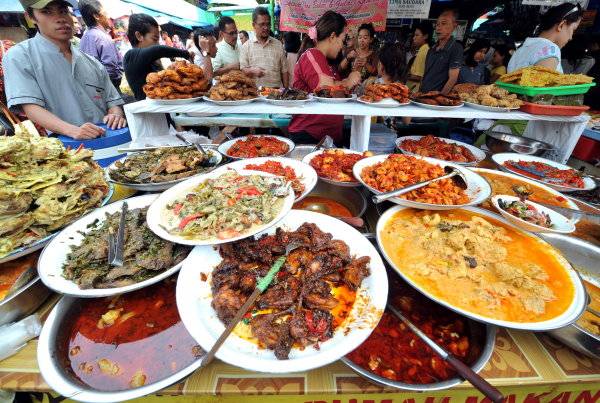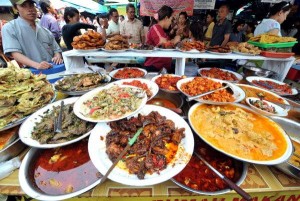Today marks the beginning of the holy month of Ramadan – the beginning of fasting for millions of Muslims around the world.
The Quran was revealed to the Prophet Mohammed during this ninth month of the Islamic calendar.
Its a month of introspection, a month to practice humility and in multi-cultural societies, it also brings a feeling of community.
Ramadan, or ramazan as it is known in some parts of world, is also known for a variety of food that’s available.
The month-long Islamic tradition of self-reflection gets observers fasting from sunrise to sunset. Two meals of the day are eaten – one just before the sunrise (suhoor), and the other soon after the sunset (iftar).
While the day progresses on an empty stomach, the late afternoon aroma of tasty food cooking feels the air with excitement.
And the month long celebration of fast and special food culminates with Eid-ul-Fitr which is often celebrated with a feast, in the loving company of  family and friends.
Most Muslims insist on eating halal food which is prepared following Islamic dietary regulations. However, the food itself is then influenced by local cultures and traditions. But the central part of most Ramadan food is dates.
Dates are used to break the fast every evening during the month of Ramadan. Medically, dates also help to restore blood sugar levels after a long day of fasting.
Given the importance of food during Ramadan, some Muslim countries have very strict food regulations during the month of Ramadan.
“We will intensify our inspection drive during Ramadan,” says Sultan Taher, Head of the Food Inspection Section at The Food Control Department of the Dubai Municipality.
“As we have to be on high alert in relation to possible food safety incidents in Ramadan, we will categorically check and monitor groceries, malls and traditional kitchens.â€
But its not just food safety that the administrators are worried about.  The Ramadan campaign for the year addresses two very important issues — food safety and food wastage, says  Khalid Mohammed Shareef Al Awadhi, Director of the department.
The department is advertising five rules:
Rule 1. Plan ahead for the amount of food you wish to prepare based on the number of people and serving size;
Rule 2. Limit the time between preparation and serving — the easiest and the safest way is to cook and serve immediately;
Rule 3. Store food safely after preparation — hot food should be held hot above 60 degree Celsius and cold food should be held cold below 5 degree Celsius. If this is not possible, food should be eaten within two hours after preparation;
Rule 4. Transport food safely in hot boxes or chilled vehicles. Follow Rule 3 for temperature control;
Rule 5. Buy safe: Don’t buy food/snacks that are sold in open condition on the street side and foods sold by unapproved vendors.
Cooked rice, meat, cut fruits, salads, desserts with milk, cream and eggs etc should always be held under temperature control as recommended above, says Asia Abdul Wahab Murad, Head of Development and Planning at the department.
“Cooked hot foods should be held at 60 degree Celsius and cold foods should be held below 5 degree Celsius. Such foods should be eaten within two hours of preparation if the facilities to store food at that temperature are not available.
“Since the weather is hot (in the Middle East), cold foods such as salads and desserts can become unsafe very fast. These are high-risk foods and should be kept chilled or prepared and eaten immediately. Such foods should not be left at room temperature for a long time.”


Leave a Reply